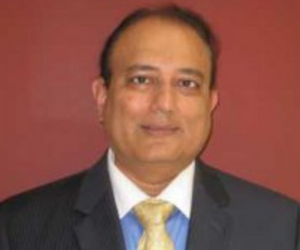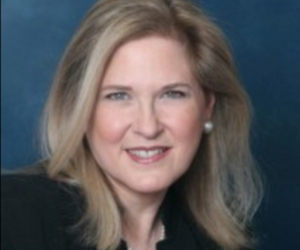Volatile Markets? Try Non-Correlated Investments
At a recent meeting of the Ritossa Family Office Summit in Dubai, Jagdeesh Prakasam said something that caught the attention of the several hundred investors who were listening to him.
He said that by using artificial intelligence and machine-based learning, his company has been able to capture some uniquely important inefficiencies in the financial markets. The result?
Achieving Positive Returns in Volatile Markets
The company where Prakasam is Co-Chief Investment Officer, Rotella Capital Management, has been able to achieve positive returns in both up markets and down ones as well.
“In the last 26 years,” Prakasam told his audience, “we’ve had a track record of double digit uncorrelated returns through some of the most challenging market environments. This includes consistent absolute returns during times of crisis for traditional asset classes.”
He went to point to a revealing graph of some of the world financial crises in the last 20 years. Whether it was the Russian Financial Crisis in 1998, or the Dot.Com Bubble of 2002, or the Financial Crisis of 2009, or Brexit in 2016, when the US Stock market tumbled, Rotella’s investments went up.
So how does he go about finding the non-correlated investments that makes this kind of performance possible?
Rotella’s COO Ian Ram added, “We use a high tech, artificial-intelligence, machine-learning approach to complement our more traditional technical and statistical models. We have 13 research scientists, 10 senior technologists, and 20 other skilled personnel. These individuals include men and women with advanced degrees in physics, engineering, mathematic and financial engineering.”
But that’s only part of his secret sauce. “What we do is an intersection of art and science. The art part is, we begin with intuitive but highly-informed hypotheses and then we test the hypotheses. As part of the testing, we apply sophisticated scientific and mathematical approaches.”
Where Is It All Leading?
When quantitative easing ended in 2014, Prakasam’s colleague, Robert Rotella, knew that among the many implications of ending the six-year $4.5 trillion program, is that the U.S. Government would no longer be supporting the American stock market. This was likely to lead to volatility.
Ending similar liquidity-enhancing programs, whether in Europe or Japan, would also have large implications. After all, when quantitative easing isn’t in effect, it’s typical to have corrections of 10% or 15% in the stock market. Under normal circumstances, these may happen a couple of times a year.
However, during the period from 2008 to 2014, this kind of volatility wasn’t allowed to happen. This meant that for at least six years, investors didn’t have to worry that one of these market drops would happen. They didn’t have to worry about needing liquidity at a time when the market is down.
Today conditions have changed. Rotella’s premise is that investors who need less volatility need more non-correlated investments. He and his colleagues at Rotella put their enormous intellectual and technical resources into discovering investments that do well independently of the stock market’s roller coaster ride.
If you’d like to know more about Rotella Capital Management’s alternative asset approach, contact: investments@rotellacapital.com
Mitzi Perdue is a professional public speaker who talks on family business. Contact her at: mitzi@mitziperdue.com.
Search Articles
Latest Articles
Investing in Ukraine: A High-Potential Market with Some (Literal) Landmines
https://www.wealthmanagement.com/high-net-worth/investing-ukraine-high-potential-market-some-literal-landmines Publication –wealthmanagement.com
Architect of Her Life
https://medium.com/@ken.roman_84029/architect-of-her-life-78e38401de71 Publication –medium.com
Meet Clara Kaluderovic
https://canvasrebel.com/meet-clara-kaluderovic Publication – canvasrebel.com
New Jersey drone sightings expose America’s battlefield blind spot
https://www.washingtontimes.com/news/2024/dec/23/new-jersey-drone-sightings-expose-america-battlefi Publication –washingtontimes.com
Subscribe to Updates
About Author

Mitzi Perdue is the widow of the poultry magnate, Frank Perdue. She’s the author of How To Make Your Family Business Last and 52 Tips to Combat Human Trafficking. Contact her at www.MitziPerdue.com
All Articles
Putting the “Family” in Family Business: It’s Worth It
Putting the "Family" in Family Business: It's Worth ItHere’s a question for you: to qualify as a family business, do at least some members of the business need to be related by blood or marriage? Tobi Silver, President of Sterling Resources, LTD has a simple,...
How to Make Your Family Live up to Its Promise
How to Make Your Family Live up to Its PromiseLisa Niemeier, family office consultant and founder of graymatter Strategies LLC, feels that family wealth is a gift. Too often and with too many families, this wonderful gift isn’t allowed to live up to its promise. In...
Silver Arrow’s Secret Sauce: An Investment Thesis Approach
Silver Arrow’s Secret Sauce: An Investment Thesis ApproachLet’s suppose a delightful situation. One way or another (maybe through inheritance, or you got a bonus, or you sold your company) you have some money available to invest. It’s a responsibility. What’s your...
How to Preserve Your Legacy, Using a Stone-Age Technique
How to Preserve Your Legacy, Using a Stone-Age TechniqueAndrew Suhl has added an electronic twist to a Stone-Age practice. Amazingly, the ancient practice we’re talking about is one that even today is one of the most essential tools for keeping your family together...
Seven Tips for Personal Cyber Security
Seven Tips for Personal Cyber SecurityRajesh Mahadwar, CEO of Softkey,Inc., is a great friend of mine, and we bonded over a shared interest in cyber security. He knows my opinion, that if you don’t get this right, you’re letting yourself in for a world of misery and...
The Ultimate Soft Skill for Management: EMPATHY
The Ultimate Soft Skill for Management: EMPATHY Want a surprising statistic? (For a hint, it has to do with soft skills.) Eighty-five percent of management success depends on people skills. Cynthia W. Lett, the woman who gives this statistic, has been advising...






